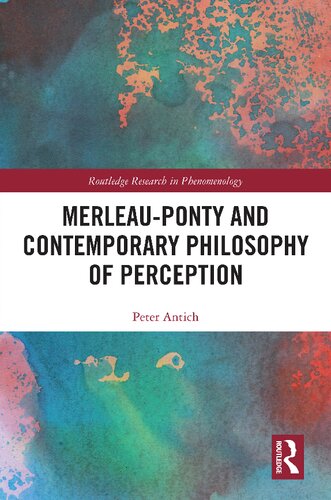

Most ebook files are in PDF format, so you can easily read them using various software such as Foxit Reader or directly on the Google Chrome browser.
Some ebook files are released by publishers in other formats such as .awz, .mobi, .epub, .fb2, etc. You may need to install specific software to read these formats on mobile/PC, such as Calibre.
Please read the tutorial at this link: https://ebookbell.com/faq
We offer FREE conversion to the popular formats you request; however, this may take some time. Therefore, right after payment, please email us, and we will try to provide the service as quickly as possible.
For some exceptional file formats or broken links (if any), please refrain from opening any disputes. Instead, email us first, and we will try to assist within a maximum of 6 hours.
EbookBell Team

4.0
76 reviewsThis book draws on Merleau-Ponty’s phenomenology to develop new and promising solutions to contemporary debates about perception. In providing an extension and defense of Merleau-Ponty's account of perceptual content and of the relation between perception and the world, it demonstrates the value of Merleau-Ponty's insights for philosophy of perception today.
The author focuses on two main topics: the contents and the nature of perception. In the first half of this book, the author tackles debates about the content of perception, namely, what sorts of properties or features of the world reveal themselves to us in perception and in what modes. Drawing on Merleau-Ponty’s description of perceptual “sense,” the author argues that perception has a unique kind of content, which cannot be adequately described in terms of sensations or concepts. He then shows how this account of perceptual sense can clarify debates about the richness of perceptual content, including whether we can perceive moral properties. In the second half, he turns to the nature of perception. Here he argues that Merleau-Ponty’s account of perceptual intentionality makes available a powerful combination of the core insights of two main contemporary approaches to this question: realism and intentionalism. The author shows how this combination can be developed, defends it from objections, and explains how it is equipped to deal with problems posed by the existence of illusions and hallucinations.
Merleau-Ponty and Contemporary Philosophy of Perception will appeal to scholars and advanced students working on phenomenology and the philosophy of perception.